Supporting your transformative agreement
Welcome to the start of your journey Cambridge Open Access


Welcome to the start of your journey Cambridge Open Access

The following resources can be shared directly with your researchers and faculty to explain what open access is, including the benefits of open access publishing with Cambridge.
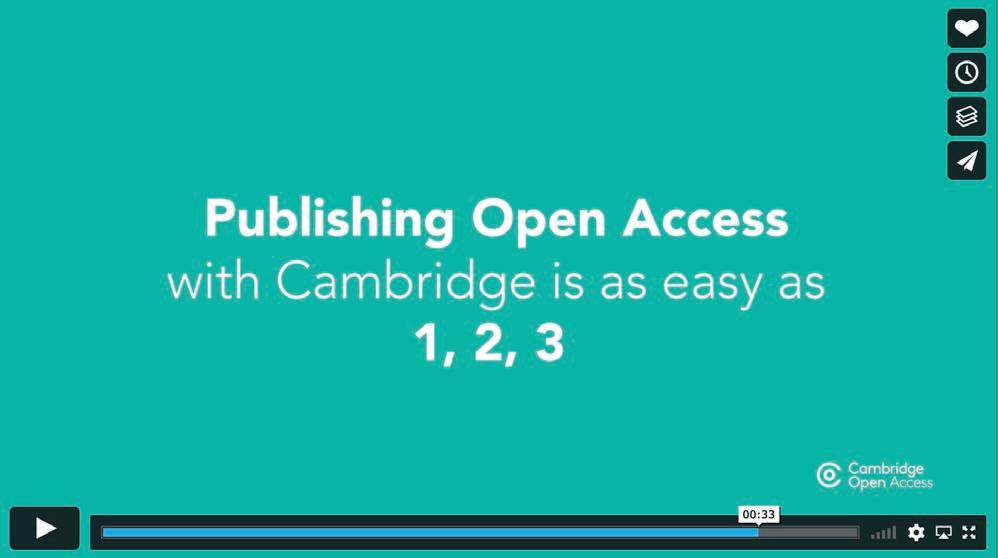
Watch our introduction to open access
Need more resources? Download our bank of images to use on social media, across the library website and in your newsletters to promote open access publishing
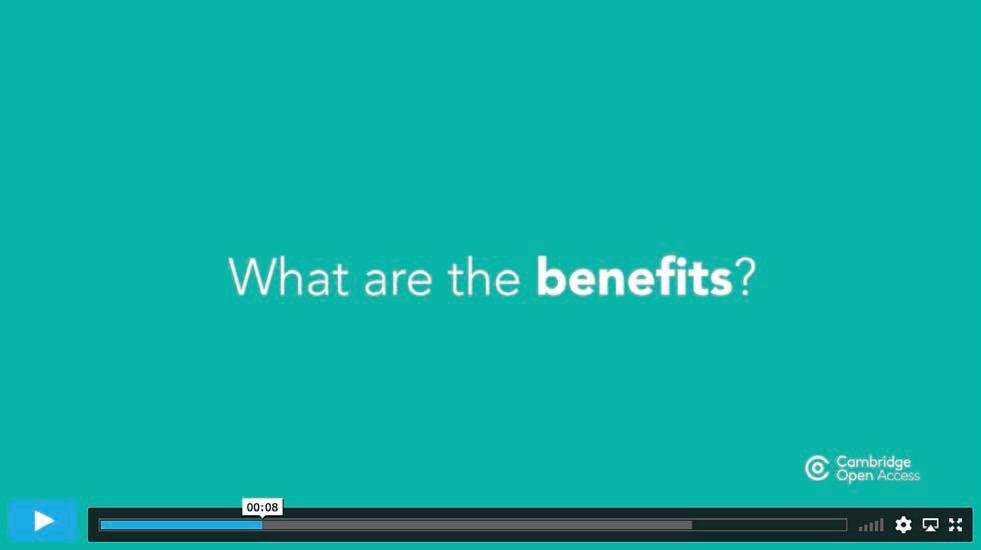
Share the benefits of publishing open access
Publishing open access can often be misunderstood and we have highlighted five common misconceptions about open access.
Share these resources on your library website and in your newsletters to help researchers understand the truth behind open access and the benefits it can offer.
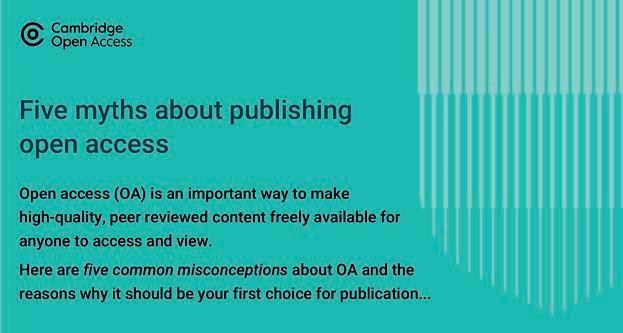
We have created a short infographic that can be shared with your researchers to help bust OA myths on campus.
2
Myth: Open access means low quality
All open access article and book submissions to Cambridge go through the same peer review and publication process as non-OA submissions.
Myth: Open access is too expensive for me
We have open access publishing agreements with +2500 institutions globally, meaning you may be able to publish your work open access at no cost to you.
Myth: There’s no benefit to me
3
Open access content is freely available online, not hidden behind a paywall, meaning increased discoverability and usage, and higher citations and downloads for your work.
Myth: I’m giving up all my copyrights
4
5
Open access articles in our fully Gold OA and hybrid journals are published under Creative Commons (CC) licences, meaning you retain the original copyright to your work while enabling readers to freely access and re-distribute your article. Our open access books are also published under a CC licence.
Myth: Paying an APC means instant acceptance
There are many less reputable publications (so called ‘predatory journals’) who will request payment up front for publication, but any payment required for our open access journal articles is taken after peer review and acceptance.
Why should OA be your researchers first choice for publication?
Unlock the truth about open access publishing with our myth-busting video.
Your agreement has a dedicated page hosted on Cambridge Core which explains useful information for your researchers, including details about eligible article types and the eligible journals for publication.

By
Bespoke imagery is available for internal promotion of your agreement. We have an image bank available which can be used across your channels to promote your agreement and subject specific content that your subject librarians and faculty can use.
Researchers can also use our Eligibility Checker on Cambridge Core to check their eligibility for support for Gold Open Access - we recommend sharing this tool with researchers so they can see which journals and articles are eligible for funding support.

To help raise awareness about your institution’s transformative agreement we have curated some messaging suggestions for use on social media –don’t forget to shout about access too.
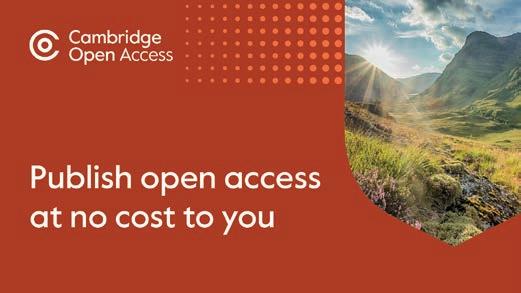
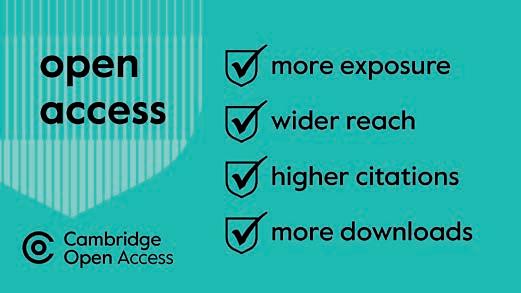
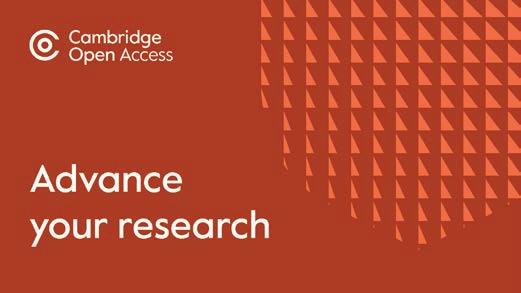
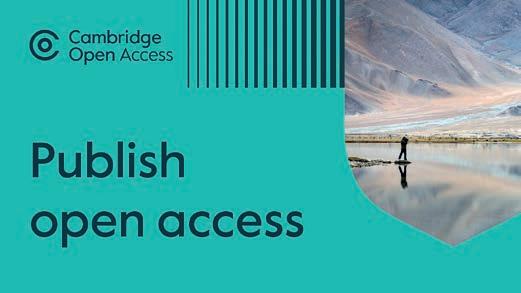
Publish #OpenAccess at no cost to you!
Check your eligibility to publish in over 420 journals from Cambridge University Press. Find out more
#OpenAccess articles typically receive higher downloads and citations and are free to read by anyone, anywhere. Our agreement with Cambridge University Press means <institution> can publish OA at no cost.
You have access to thousands of articles from Cambridge University Press through [the university]. Explore leading research, download articles, and easily export citations from Cambridge Core.
Publish your next paper #OpenAccess with Cambridge University Press. Benefit from increased visibility and impact, meaning more citations and downloads for your article. <institution> researchers can publish #OpenAccess with no cost to them.
Open access publishing can be confusing for your researchers, especially with the differing workflows and all the jargon. Improve their experience by sharing the resources on this page.
Help your researchers navigate their publishing journey with confidence, by recommending our Cambridge Author Services. We offer services ranging from English language editing and academic translation, to assistance with manuscript formatting and journal selection, ensuring the manuscript meets journal standard for submission.



A breakdown of the process of publishing an open access article with Cambridge, from manuscript preparation to article production and publication.
Visit
Our glossary of OA terms will assist researchers in understanding the jargon surrounding open access and the terminology used by most publishers.

Federal Law Review
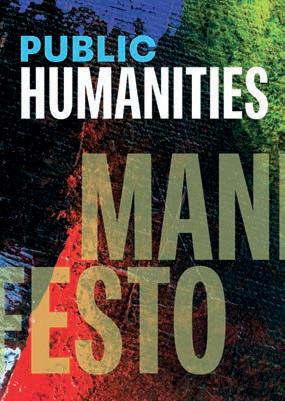
Public Humanities
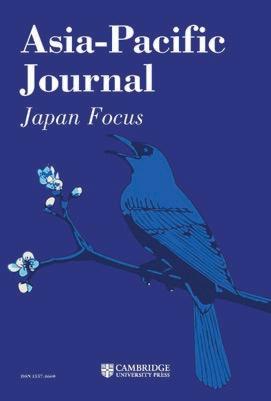
Asia-Pacific Journal: Japan Focus

Journal of Nonlinear Waves
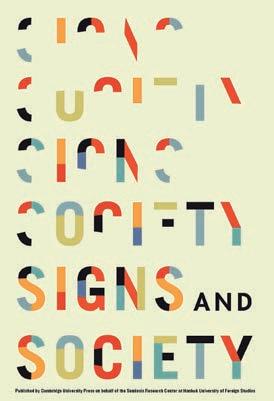
Signs and Society
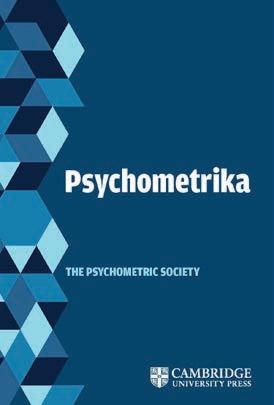
Psychometrika

Cambridge Prisms: Carbon Technologies

Cambridge Prisms: Energy Transitions
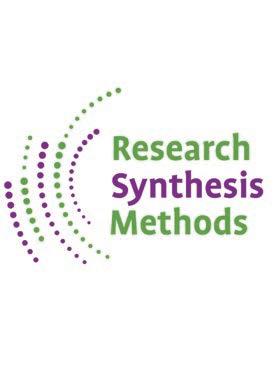
Research Synthesis Methods
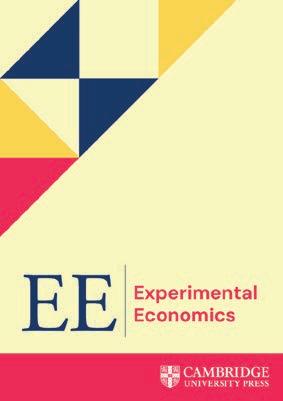
Experimental Economics



Computational Humanities Research

Cambridge Forum is our new open access series which will publish curated themed issues that bring together peer reviewed, cross-disciplinary research from across the humanities and social sciences.
To provide support to your researchers, we recommend staying up-to-date on changes to our journals portfolio.
journals publishing open access content open access articles of research content published in 2024 was open access
We are committed to support open research and transforming the vast majority of journal research publishing to open access. In 2025, we will be flipping 60 journals to Gold open access (including all 7 titles joining Cambridge) and 19 journals to Research Open. See the full list of titles here.
For more information visit www.cambridge.org/oa-lib-hub
email: library.marketing@cambridge.org or get in touch with your local sales contact